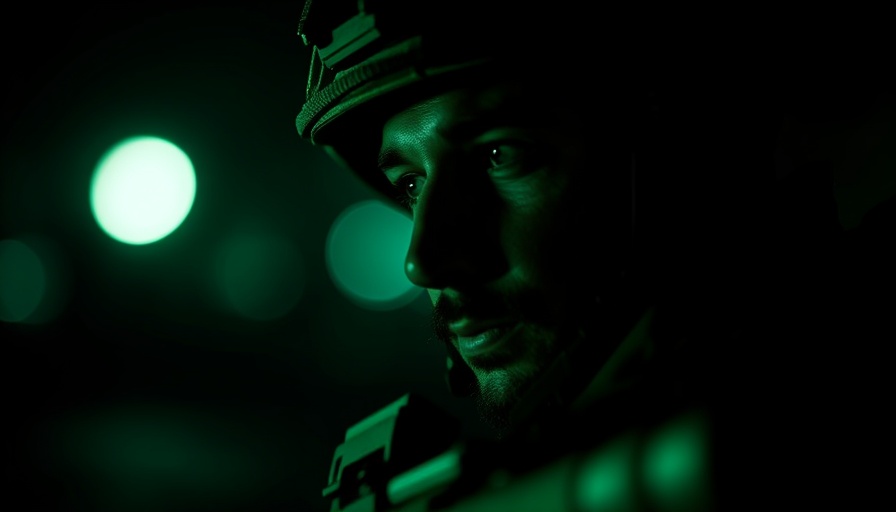
The Era of Clandestine Warfare: Proxy Conflicts and Covert Operations
The landscape of international conflict is rapidly transforming as military operations increasingly move from conventional battlefields to the shadows. The 2020s have emerged as a turbulent decade, characterized by intense proxy wars sustained by American intervention yet hidden from the public eye. From the ongoing struggles in Ukraine to the devastation wrought in Yemen and Gaza, the U.S. military’s involvement is largely orchestrated through clandestine support rather than direct engagement.
At the center of this military strategy is the Joint Special Operations Command (JSOC) based in Fort Bragg, North Carolina. This powerful entity, often invisible to everyday citizens, has become a fundamental part of the military apparatus, executing specialized operations that include intelligence gathering and targeted assassinations.
Tracing the Origins of JSOC's Influence
Many people associate the rise of JSOC with the 9/11 attacks; however, Seth Harp’s book, The Fort Bragg Cartel, posits that its ascendance began during the tumultuous Iraq War. The period witnessed not only a surge in violence but also a critical questioning of U.S. military strategy, culminating in an eventual pivot under President Obama, who sought to retreat from overt military engagements.
Amidst the chaos of Iraq, the U.S. faced a crisis, reflected in reports of daily violence—each statistic a testament to the bloodshed. This prompted a wave of advisors within the special operations sector to offer new strategies, reshaping how American military strategy would align with foreign policy aspirations.
Shaping Geopolitical Landscapes: The Role of Covert Operations
The evolution of U.S. military involvement is defined by clandestine operations that serve as instruments of foreign policy. By supplying arms and intelligence, JSOC amplifies the impact of select groups in conflict zones without the need for formal troop deployments. This clandestine approach not only circumvents public scrutiny but also perpetuates extended conflicts, creating a cycle of violence.
As documented in Harp's work, JSOC emerged as the core of covert operations due to its capability to conduct these operations with a level of discretion and efficacy that traditional military units cannot match. The organization’s focus extends to conducting targeted strikes against individuals perceived as threats, acting from within the shadows of foreign nations.
Current Implementation and Future Implications of Shadow Warfare
The implications of JSOC’s operations run deep, impacting not only military strategy but also international relations. The rise of proxy warfare introduces significant dilemmas regarding accountability and oversight. For instance, when U.S.-backed factions engage in human rights violations, the repercussions can destabilize entire regions.
Moreover, understanding the future of such warfare can illuminate emerging trends. As technology continues to evolve, tools such as drones and artificial intelligence will further enhance the military's capacity to conduct operations remotely. Thus, the battlefield will expand well beyond traditional arenas, pushing the boundaries of warfare into cyberspace and beyond.
Challenging Questions about Covert Military Power
The reliance on clandestine military strategies raises critical ethical questions. How do we measure the success of proxy wars? What accountability exists for operations that remain hidden from public oversight? These questions underline the urgent need for informed discourse surrounding the military-industrial complex in the context of modern warfare.
Furthermore, as transparency continues to dwindle, American citizens must grapple with understanding their government’s role in shaping violent international landscapes. It is pivotal to explore these topics, as they denote the intricate ballet of power that exists behind closed doors.
A Call for Transparency and Accountability
As JSOC wields increased power in shaping military operations, the onus falls on society to demand greater transparency and accountability. Citizens should engage in discussions about the implications of covert warfare and its ramifications globally. Understanding these operations not only informs better governance but also instills a sense of shared moral responsibility for international repercussions.
As we confront a rapidly shifting geopolitical climate, it is essential for the public discourse to evolve in tandem. By fostering awareness around military tactics like those employed by JSOC, we can better navigate the implications of these shadowy operations and their impact on global peace.
 Add Row
Add Row  Add
Add 




Write A Comment